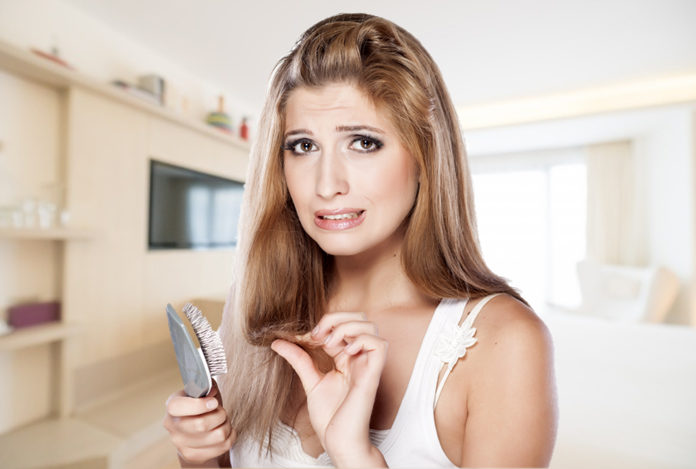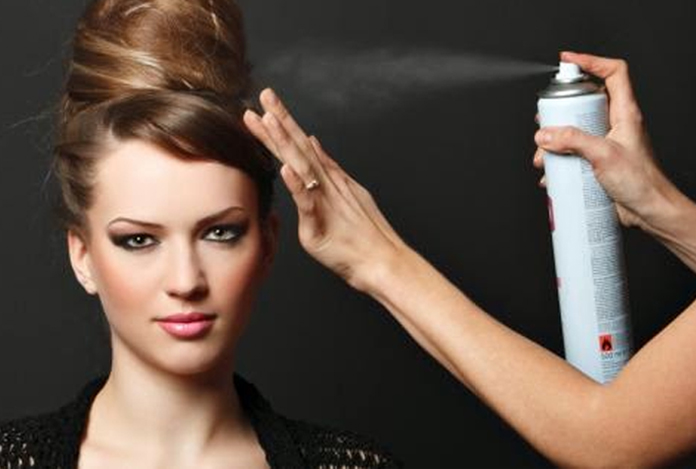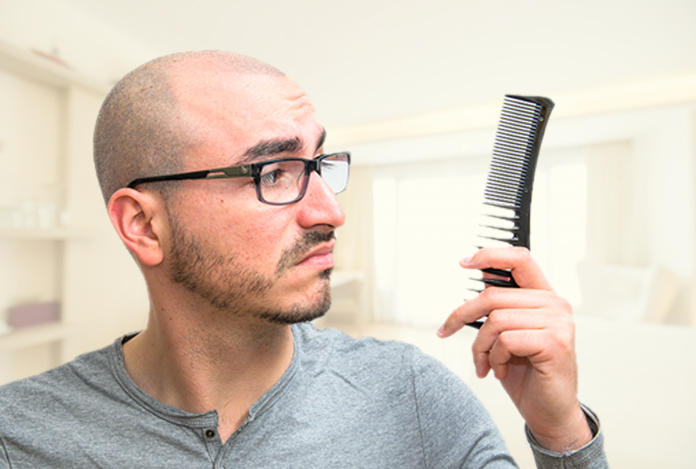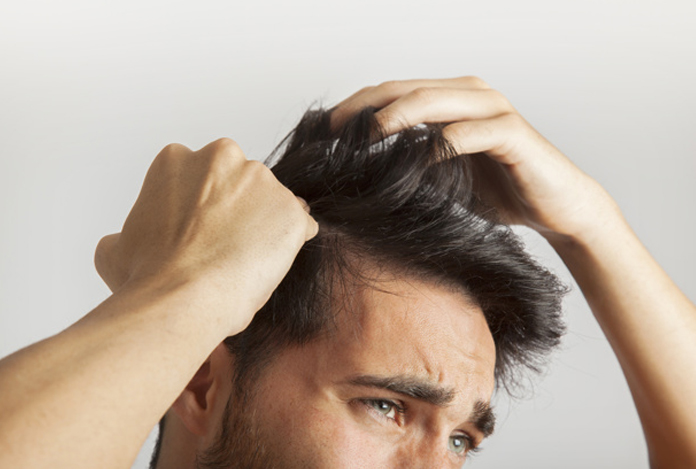
Hair is an important aspect of our persona and no one wants to lose it. But, do you know, losing hair is a natural phenomenon! An individual on an average loses almost 50 to 100 hair strands a day. New hair grows in place of the lost ones, and this cycle continues throughout the life. As a matter of fact, human hair grows smoothly during adolescence and the growth is constant up to 7 years after the onset of adolescence. Human hair is at its healthiest and most attractive state during this phase of life.
Hair loss occurs when hair follicles start to age. A little hair thinning is natural as it occurs when productivity of the follicles begins to decrease with age. Hair loss can be temporary or permanent. Permanent hair loss is caused by genetic factors and it is irreversible.
Besides normal aging, various other factors can lead to hair loss like hormonal imbalance, stress, over-styling, severe illness, drugs, poor diet and many more. This indicates that premature hair loss can affect anyone and at any stage of life. Moreover, it is a general observation that people tend to devote less time and resources for hair care as they reach their 30s. This can also exacerbate the condition if a person is already experiencing hair loss.
Hair loss is often distressing and may hamper the quality of life of both the sexes. Generally, in men hair loss results in baldness and in women, it leads to hair thinning. According to several studies, hair loss is found as one of the major reasons for depression and anxiety and vice versa. While it doesn’t affect everyone, those, who are affected end up being depressed or hopeless about their condition.
Depending on the causative factors of hair loss, natural as well as medical treatments are available to prevent or manage hair loss.
Reasons for Hair Loss
Listed below are some common reasons that could lead to hair loss:
- Aging
- Pregnancy
- Heredity
- Stress
- Diet
- Over-Styling and use of cosmetics
- Hormonal imbalance
- Health conditions
- Medications and treatments
- Scalp infections
- Overreaction of immune system
Aging:
Broadly, hair loss is just another sign of aging. The growth rate as well as strength of the hair decreases as a person age. This leads to gradual thinning of hair. Aging also cause androgenic alopecia, commonly known as male and female pattern baldness. After the age of 40, pattern baldness starts to occur. In the 60s, a person starts experiencing significant hair thinning or baldness. In women, the rate of hair growth decreases considerably after menopause.
Pregnancy:
During and after pregnancy, multiple changes occur in a female body at hormonal level. This causes temporary hair loss until 4 months after childbirth.
Heredity:
If you have a family history of baldness or hair loss, then you are more prone to have it too! There is no direct cure for hereditary baldness, but hair loss can be delayed with specific treatments.
- Family History: According to the American Academy of Dermatology (AAD), the most common cause of hair loss is androgenic alopecia. The gene is usually inherited through parents or other family members.
Stress:
Stress is also known to a probable reason for hair loss:
- Physical Stress: The stress, which affects you physically may cause hair loss. Physical stress includes severe illness, trauma or accident. Due to this, the shedding phase of the hair growth extends. Post traumatic events develop acute stress disorder that may last up to one month or even more. Hair loss starts 3 to 6 months post trauma.
- Psychological Stress: This can be understood as emotional stress, which may not be a reason behind hair loss but can aggravate the condition. The level of stress may vary from person to person and can be induced by traumatic events, such as divorce, breakup, hospitalization (of oneself or a family member) or losing a loved one.
Diet:
A healthy diet can prevent as well as help you manage any kind of health condition. Similarly, a poor diet can lead to various disorders or may aggravate a medical condition.
- Malnutrition (Nutritional Deficiencies): Deficiency of vitamin B or over consumption of vitamin A is known to be responsible for hair loss.

Over-Styling and Use of Cosmetics:
Exposing hair to any harsh condition might lead to hair loss.
- Over-Styling: Tight braids or styling the hair using a straightener or curler (hot styling tool) may result in hair fall.
- Cosmetics: If you give hot oil treatment to your hairs or use chemicals for straightening or curling, temporary or permanent, then gradually the strength of your hair would decrease. This will also affect the roots of your hair that might result in permanent hair loss.
- Extra Hair Care: Excessive use of chemical-based shampoos, conditioning agents and dyes may damage the hair shaft, which may result in hair loss. Also, more often washing, combing wet hair and taking steamy shower can lead to hair loss.

Hormonal Imbalance:
Hormonal imbalance can occur in both males and females that may result in hair loss.
- Male Pattern Baldness: In this, testosterone – the male sex hormone –secretion is disrupted, which can lead to hair loss.
- Female Hormones: The female sex hormone, estrogen, secretion gets disturbed in polycystic ovarian syndrome (PCOS) as well as on discontinuing birth control pills (BCPs). This may result in hair loss.

Health Conditions:
If you are suffering from conditions like hypothyroidism, hyperthyroidism, hypopituitarism or you have anemia, this may lead to hair loss.
- Hypothyroidism: Thyroid hormone is responsible for growth of hair skin and nails. In hypothyroidism, the release of thyroid hormone from thyroid glands decreases that can cause hair loss. A lot of people, mostly women suffer from thyroid disease. Thyroid medications are available to maintain the normal thyroid hormone level in your body.
- Anemia: Anemia is commonly known as iron deficiency. Hair loss is one of the symptoms of iron deficiency, especially when the condition has progressed to its severe stage.
- Reduced Blood Circulation: Hair follicles gets its nourishment from the blood stream and reduced of blood circulation may lead to hair thinning.
- Weight loss: Weight loss up to 20 pounds or more can be a reason behind hair loss.

9. Medications and Treatments:
These may include the following:
- Chemotherapy: Drugs that are used in cancer treatment causes the loss of hair all over your body. However, this is a temporary condition and goes away once the treatment is over.
- Head Radiation Therapy: This is done to treat brain cancer and leads to temporary hair loss. After the treatment, hair growth occurs, but new hair tends to be slightly different from the original.
- Antidepressants: Antidepressants – used to treat depression and bipolar disorder – along with blood thinners and blood pressure drugs can lead to hair loss.

Scalp Infections:
Skin conditions, such as dandruff, psoriasis, & ringworms can cause hair Loss. These conditions lead to scalp inflammation and itching.
- Dandruff: The medical term for dandruff is seborrheic dermatitis, which damages hair follicles and causes scalp itchiness.
- Ringworms: Ringworms infect scalp in the form of patches and spread all over the scalp and lead to broken hairs and scalp inflammation.

Over-Reaction of Immune System:
If your immune system does not respond effectively against viruses or bacteria, it may lead to rashes or infection. Autoimmune-related hair loss is known to affect almost 6.8 million people in the US. In this condition, people experience hair fall in small patches.
- Alopecia Areata: In this condition, the immune system mistakenly attacks hair follicles. However, the exact cause is not known, but it is believed that it could be triggered by stress or illness too.
- Telogen Effluvium: A type of non-scarring alopecia, Telogen Effluvium is the second most common form of hair loss, which takes places after a major surgery, pregnancy, extreme stress and excessive weight loss.
Excessive hair loss while shampooing or combing is a characteristic symptom of lupus. Telogen effluvium may occur due to the adverse effect of certain drugs like NSAIDs, beta blockers, anti–inflammatory drugs and antidepressants.
- Lupus: Lupus is believed to affect approximately 1.5 million people worldwide. Most commonly, women in the age group of 15-44 are more prone to develop lupus. It is a serious autoimmune disease, which occurs when the body’s immune system attacks own tissues.
Hair loss is also one of the major symptoms of lupus. Hair may come out in patches and rashes may also appear on the scalp.











